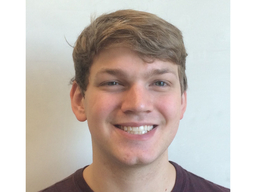PhD Proposal: Josey Stevens
Location
Physics : 101
Date & Time
April 24, 2025, 12:00 pm – 1:00 pm
Description
ADVISOR: Dr. Sebastian Deffner
TITLE: Resource, Complexity, and Algorithmic Requirements for Quantum Computing
ABSTRACT: The path toward a ubiquitous quantum computing future requires addressing the resource requirements for useful quantum computation and formulating improvements to quantum algorithms, including data loading and formatting for computation. I present a research program that addresses the resource needs directly by proposing a rigorous method to determine the energy requirements and design complexity of a quantum computer executing quantum algorithms. To address the data loading and processing needs, I propose benchmarking multiple common data loading techniques as applied to time-series data, and modifying or developing new data loading techniques to address performance observations. The development of these and other results developed for the study and realization of useful quantum computers provide new tools and insights through which fundamental quantum theory can be analyzed. We highlight how such developments have often connected distant branches of physics and develop into new research areas. We propose one such approach by developing a Hamiltonian-based alternative to the common gate-based definitions of quantum complexity for both computers and states. We also provide an honest risk assessment and timeline for this research proposal, including mitigation strategies for assessed risks.
TITLE: Resource, Complexity, and Algorithmic Requirements for Quantum Computing
ABSTRACT: The path toward a ubiquitous quantum computing future requires addressing the resource requirements for useful quantum computation and formulating improvements to quantum algorithms, including data loading and formatting for computation. I present a research program that addresses the resource needs directly by proposing a rigorous method to determine the energy requirements and design complexity of a quantum computer executing quantum algorithms. To address the data loading and processing needs, I propose benchmarking multiple common data loading techniques as applied to time-series data, and modifying or developing new data loading techniques to address performance observations. The development of these and other results developed for the study and realization of useful quantum computers provide new tools and insights through which fundamental quantum theory can be analyzed. We highlight how such developments have often connected distant branches of physics and develop into new research areas. We propose one such approach by developing a Hamiltonian-based alternative to the common gate-based definitions of quantum complexity for both computers and states. We also provide an honest risk assessment and timeline for this research proposal, including mitigation strategies for assessed risks.
